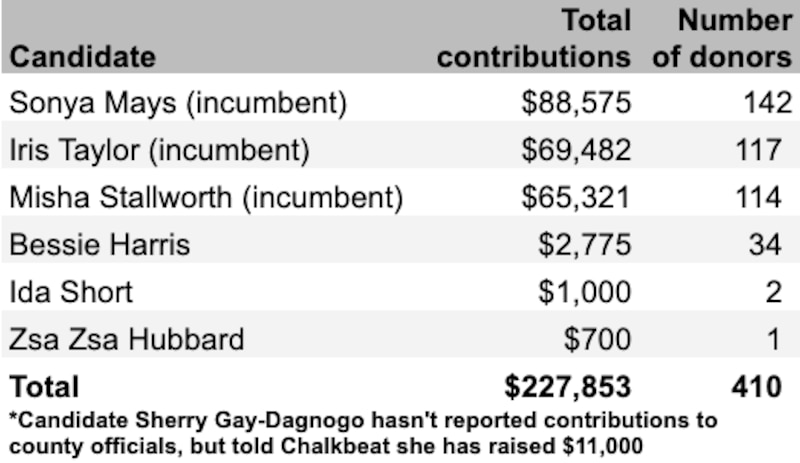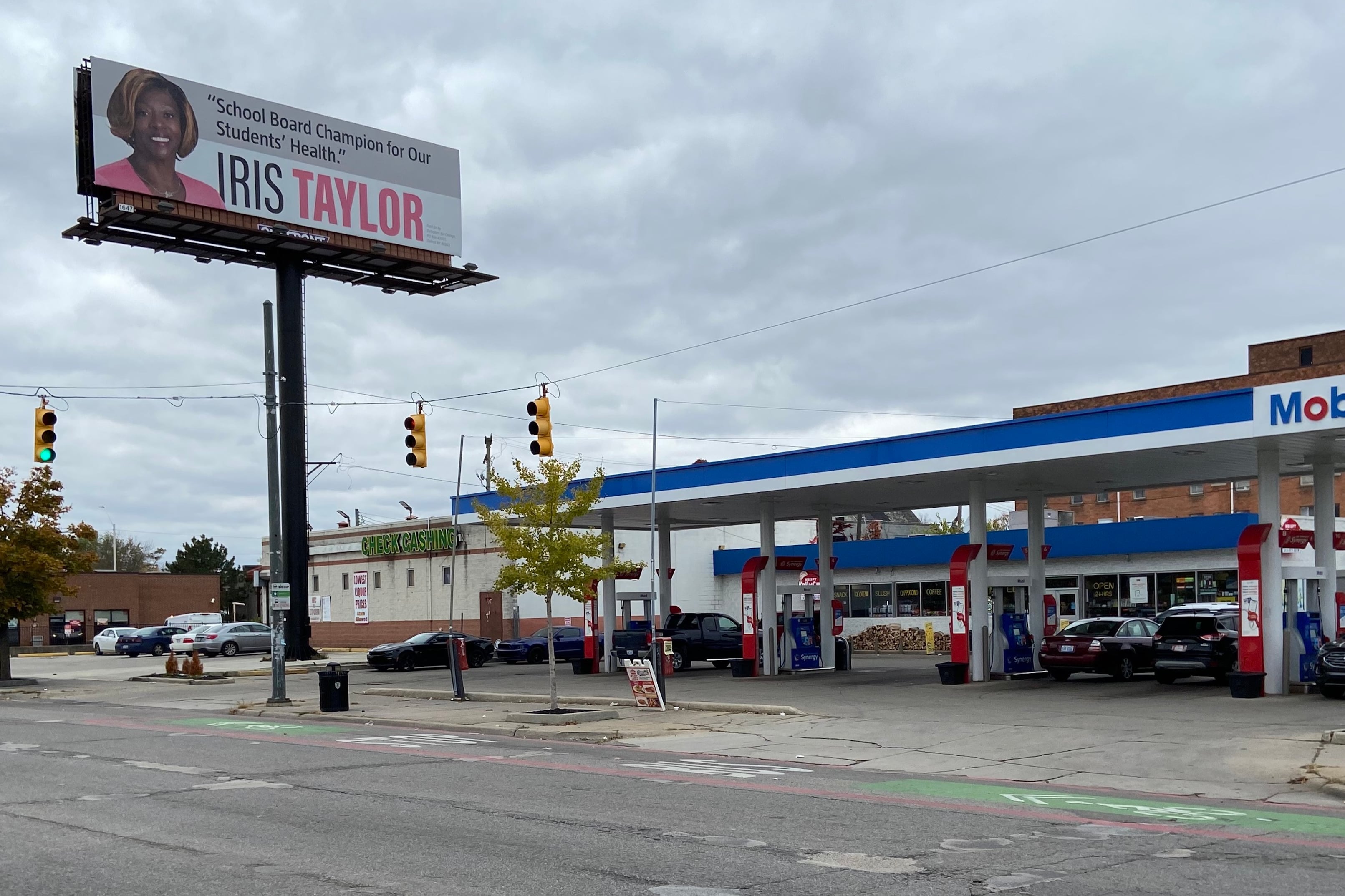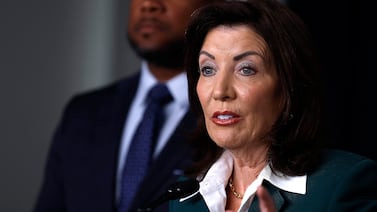An influx of political donations to incumbents in the Detroit school board race underscores the high stakes of the election and a belief among the city’s business and political leaders that the district is on the right track.
Donors poured more than $214,000 into the race by the pre-election filing deadline, on pace to outstrip total contributions in the pivotal — and much larger — 2016 race, the first after years of state control.
Almost all of the reported contributions went to the three incumbents: board President Iris Taylor, Treasurer Sonya Mays, and Secretary Misha Stallworth. At least one challenger, Sherry Gay-Dagnogo, missed the deadline for reporting contributions and faces a late filing fee. She says she has raised $11,000 to support her campaign and has also tapped funds she raised as a state representative.
Another three candidates reported raising a total of less than $5,000. Most of the 14 candidates for three at-large seats on the seven-member board did not report any political fundraising or spending. Some of the challengers said it’s difficult to compete with campaigns that are able to spend money on billboards and citywide mailers.
The high levels of political spending, including by some of the most powerful names in Detroit business and politics, underscores the importance of this election. Reforms spearheaded by Superintendent Nikolai Vitti could be derailed if the incumbents are replaced by candidates who oppose his efforts.
Donors Chalkbeat spoke with say the district is the healthiest it’s been in decades, noting that the health of the school district is essential not only for the futures of city children, but for the city’s economy and tax base.
Greg Handel, vice president of education and talent at the Detroit Regional Chamber, said the incumbents have played a key role in what he views as one of the most promising stretches in the recent history of the Detroit Public Schools Community District.
“Over the last few years we’ve seen the district climb out of a pretty deep hole,” he said. “It’s slow, and it’s hard work, but we’ve seen sustained progress on a number of factors for the first time in a long time.”
The chamber donated a total of $3,000 to the incumbents. Other top donors include the Honigman law firm, and executives at DTE Energy, Quicken Loans, General Motors, and TCF Bank, as well as current top officials in the Detroit district.
“Our Detroit Public School Community District has made tremendous progress in engagement within the greater city, and we continue to connect with new people each and every day,” the three candidates said in a joint statement. “There is a strong and deep interest in keeping DPSCD moving forward and improving the quality of learning for all students.”
For evidence that the district has progressed since they joined the board in 2017, the incumbents point to stable enrollment, reduced chronic absenteeism, strengthened finances, and small test score improvements.
They won endorsements from the Detroit Free Press and Michigan Chronicle. Members of district educator unions are supporting the three incumbents as well as candidates Sherry Gay-Dagnogo and LaMar Lemmons, according to Terrence Martin, president of the Detroit Federation of Teachers.

Donations rival 2016 election
The amount of money donated to the incumbents stands out: They’ve raised nearly ten times as much as all the candidates for two open seats in 2018, and are on pace to outraise the much larger 2016 field.
In a statement, the incumbents noted that the 2016 election was announced in June of that year, meaning candidates had less time to fundraise than they did this year. Still, almost all of the contributions to candidates in both elections were made between July and November.
The 2016 election offered a chance to chart a new course for the troubled district after decades of dysfunction and state control. Scores of candidates vied for seven open seats, raising more than $290,000.
Now a new course has been set, with the district making large investments in new curriculum and teacher salaries, and political donors are on track to spend just as much on three candidates who promise to maintain the same direction.
Mays has brought in nearly three times more contributions this year than she did in 2016. Stallworth and Taylor have more than doubled their campaign income from 2016. As of the October filing date, contributions this year were on pace to beat out 2016.
The incumbents have spent campaign funds to win over voters through mailers, campaign staff, online advertisements, and billboards.
Anonymous donations buoy incumbents
They have gotten additional help from two nonprofits that have paid for advertisements touting the incumbents’ records on the board. Contributions to these groups and their expenditures aren’t made public.
One group, Detroiters for Change paid for digital ads, television spots, and billboards for Iris Taylor. Another nonprofit, Detroiters for Our Children, created advertisements for the three incumbents.
These organizations are legal, but they have been sharply criticized by transparency advocates, who label them “dark money.” Donations from these groups have been on the rise since the U.S. Supreme Court decided in the Citizens United case that corporate donations can be considered political speech. The groups are an increasingly common phenomenon even in local political races. In Grosse Pointe, similar organizations have purchased ads in a hotly contested school board race.
“There’s a lot more of that money flowing into campaigns,” said Richard Hall, a professor of public policy at the University of Michigan who studies U.S. campaign finance. “That’s the main source of the growing size of campaign expenditures these days.”
Click here to view all 2020 Detroit school board campaign contributions reported as of Oct. 18.
Click here to view reported late contributions.
Candidate Sherry-Gay Dagnogo had not reported campaign contributions as of Oct. 30, 2020.






